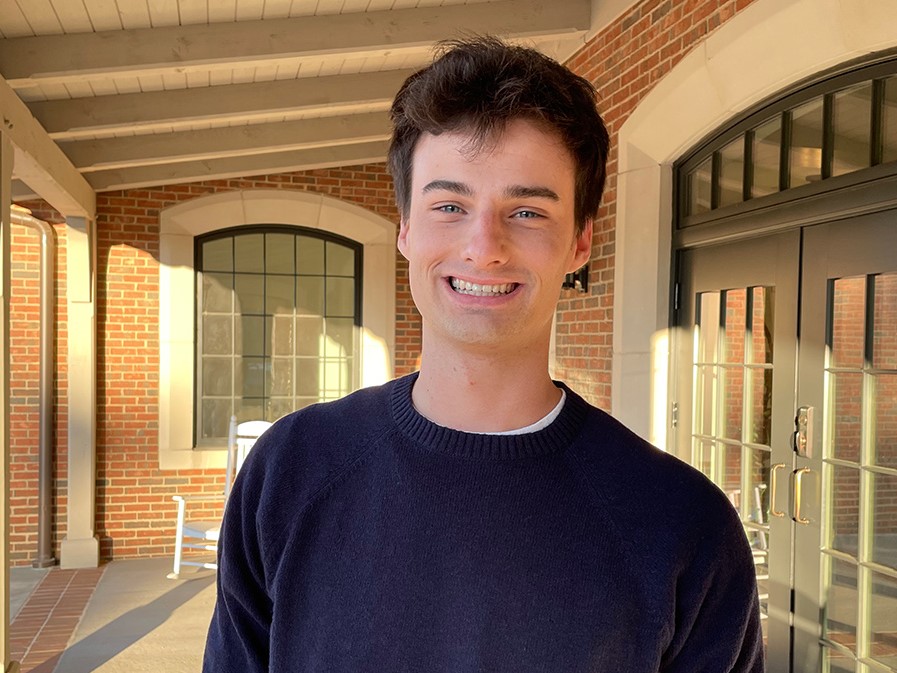- Membership
- Perks and Discounts
- Things To Do
- Resources
- News
- About
- Shop
Related Content
UNC Named Fulbright “Top Producer”
March 4, 2024
For the 14th time in the last 15 years, UNC has been recognized as a...
Read MoreSophomore Advances on Jeopardy!
Jan. 11, 2024
While most people can only imagine the thrill of competing on Jeopardy!, sophomore Rotimi Kukoyi...
Read MoreFive Consecutive Hearst Championships for UNC
June 15, 2023
Journalism students at the Hussman School of Journalism and Media won their fifth consecutive Hearst...
Read More-
2024
-
2023
-
2022
-
2021
-
2020
-
2019
-
2018
-
2017
-
2016
-
2015
-
2014
-
2013
-
2012
-
2011
-
2010
-
2009
-
2008
-
2007
-
2006
-
2005
-
2004
- Academics and Athletics
- Admissions
- Alumni Profiles
- Alumni Recognition
- Around Town
- Arts
- Books
- Campus Profile
- Campus Safety
- Carolina Alumni Awards
- Carolina Alumni Leadership
- Carolina Alumni Programs and Outreach
- Carolina Alumni Reunions
- Carolina Alumni Review
- Celebrations
- Championships
- College and Costs
- Commencement
- Coronavirus
- Discovery
- Extracurricular
- Faculty
- Faculty Awards
- For the People
- Go Heels
- Greek Life
- Hark the Sounds
- Higher Education
- Homecoming
- In Class
- In Memoriam
- Innovation and Technology
- Issues
- Object Lesson
- On View
- Our Treescape
- Philanthropy
- Podcast
- Public Service
- Race and Reckoning
- Research
- Sexual Assault
- Silent Sam
- Sports
- Structures
- Student Achievement
- Students
- Timelines
- Tuition and Financial Aid
- UNC Libraries
- UNC’s History
- Undergraduate Spotlight
- University Achievements
- University Awards
- University Budget Issues
- University Development
- University Leadership
- University News
- University Rankings
- What We Do
- Who We Are
- Young Alumni
- Yours at Carolina
Senior Studying How Comedy, Politics Mix Named Marshall Scholar
Posted on Jan. 6, 2021
A history course at Carolina on American pop culture examining how politics and comedy can intersect in a powerful way set Patrick Clinch on a path to understanding that connection on a deeper level. (UNC photo)
Growing up, Patrick Clinch vacillated between wanting to be secretary of state and a famous comedian. After developing an interest in political science in high school and at Carolina, he landed somewhere in the middle of those two aspirations.
Now a senior studying history and political science, Clinch has been named Carolina’s 21st Marshall Scholar. The prestigious scholarship funds graduate studies in any field at up to two institutions in the United Kingdom.
A native of Dunwoody, Ga., Clinch is a Robertson Scholar, a member of Phi Beta Kappa, an Honors Carolina student, co-founder of FAIRolina — a student organization that promotes voting rights reform in North Carolina — and a member of the Chapel Hill Players improv and sketch comedy group.
A history course at Carolina on American pop culture showcased how politics and comedy can intersect in a powerful way, setting Clinch on a path to understanding that connection on a deeper level.
“I believe that laughter and silliness are really essential to life,” he said. “We live in a world where a lot of people automatically turn to comedy for information about politics. I think it’s important to understand what role comedy plays in modern political discourse. I’m interested in understanding how it can be used as a tool for good because I believe it has a lot of power — if for no other reason than the fact that it reaches a much bigger audience than policy briefs or political news.”
Clinch dove deeper into the intersection of entertainment and politics in his senior thesis on P.T. Barnum, founder of the Barnum & Bailey Circus. His thesis traced the political consequences of Barnum’s use of racial stereotypes in several of his shows, highlighting how pop culture can influence democracy.
Clinch’s passion for politics led him to Washington, D.C., to work as a legislative intern for House Majority Leader Steny H. Hoyer of Maryland, and later to London as a communications intern during a study abroad semester. Those experiences further fueled his interest in a political career.
“You do get a sense that Capitol Hill, for all its flaws, is a public space and a public hall, and that’s a very inspiring experience,” he said. “You see how people from all walks of life, in one way or another, have their finger on the levers of power in a very real way. It’s hard to see that and not want to be involved.”
Before returning to politics, Clinch plans to make a two-year stop in England to continue researching pop culture and politics, particularly examining the relationship between the rise of the printing press and the British Empire’s expansion. He plans to study at Oxford University.
The Marshall covers university fees, cost of living expenses, annual book grants, thesis grant, research and daily travel grants, and fares to and from the U.S.
Founded in 1953, the scholarship finances the opportunity for young Americans of outstanding ability to study for a degree in the United Kingdom. The Marshall Scholarships honor the ideals of the Marshall Plan and are named after former U.S. Secretary of State George C. Marshall. Marshall Scholarship selectors seek applicants who “have the potential to excel as scholars, leaders and contributors to improve U.K.-U.S. understanding.”
© 2024 Carolina Alumni
